Part 1: Reflection and Her-Story
Salutations. It’s hard to know where to start, an unusual predicament for this slinger of words. Summarizing our work this year feels so much less important than trying to uphold the work of our fellow colleagues caring for those with COVID-19.
These are the times that most remind me of Dickens, and the words you have all heard of, even if you didn’t know who wrote them:
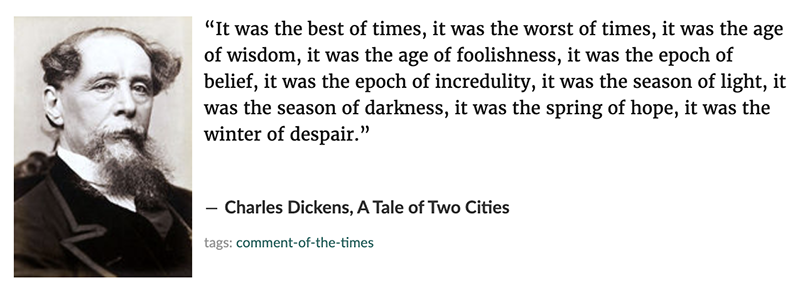
Dickens, more so than any author I have yet read, captures the highs and lows of a year such as this. His genius for bringing characters—experiences you could relate with—out front and center has never ceased to amaze me.
Don’t get me wrong—he wasn’t a saint and has been decried as a writer of “fairy tales, pantomines” as opposed to prose, but when he died, people the world over mourned because of his loss, because of his stories.*
How Will We Tell This Year’s Story?
I do wonder how we will tell the tale of our work this year. How will we record our stories so that our history becomes his- or her- or their-story? What will the future remember about the year 2020 and about us?
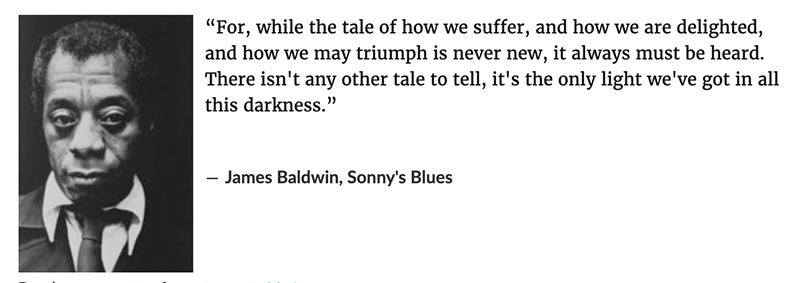
What Have We Learned This Year?
As I looked back at our work this year, what I really wanted to ask my team was: what have we learned this year? So, before I get to some cold, hard data, we’re gonna’ run with a few reflections from the team.
Ashley (Content Specialist):
“What I learned:
- I miss interacting with coworkers at the office on a daily basis and the treats that would magically appear over on marketing’s side.
- The thought of speaking up in meetings to express my ideas or feelings still terrifies me. However, meeting with clients one-on-one more frequently has really helped build my confidence in expressing my expertise. I learn best when I’m thrown into the lion’s den alone even if it makes me a nervous ninny.
- I love color-coding Excel spreadsheets! It helps me stay sane and organized when I’m managing 40+ freelance assignments. (I blame my color-coding madness on binging too many episodes of The Home Edit in quarantine).
- Location, location, location is of the utmost importance when working from home. A desk in front of a window with picturesque mountain views is beautiful, but extremely distracting. Sitting in front of a boring, blank wall seems to work best for my focus.
- The Holiday soundtrack by Hans Zimmer and Richard Eliot’s cheesy 80s saxophone music is THE BEST for editing freelancer drafts.
- I initially invested in a new bike to calm my pandemic-induced anxiety. However, my bike (Jessica) did much more. Because of her, I made new lifelong friends and pushed my body to bike into oblivion (400+ miles).”
Melissa (Content Specialist):
“Well, while nothing seemed to go quite according to plan this year, I’m happy to say I’ve learned some important lessons in adaptability, self-compassion, and, most especially, the healing power of kitty cuddles. I gained a new appreciation for things I hadn’t realized you could miss, like office chairs, second monitors, and the clacking sounds of my coworkers’ keyboards (you never really know what you have until it’s gone, I suppose).”
“I persevered through piles of QA spreadsheets, wrangled with SMEs and freelance writers, and polished up pages until they shined. Thanks to all of my fantastic coworkers and friends for your support and patience as I’ve worked to conquer this year’s many unexpected challenges.”
Matt (Web/SEO Support Specialist):
“In 2020, I’ve learned to take a moment each day and be grateful for the people around me, the things I have, and the opportunities I’ve been given. Many liberties that we all take for granted have been suspended for much of the year, and I plan to relish things like family gatherings and recreational travel in a way I’ve never done before. “
Jen (ME! Content Manager):
“I learned that I can work from home and like it!”
“This year also led me to deeply question my unconscious cultural belief in what I thought was an unsegregated and fair society. Relationships with people of all sizes, shapes, and races have always made my life richer . This year, however, my attention was transfixed by listening to people of color and I heard amplified the pain the White race has inflicted. I internalized how deeply engrained the social contract is within me from my White culture, and how much I have to recognize my privilege every day.”
“Also, I learned that my cats will always take me for granted, even if I’m home all day catering to their every need.”
Part 2: Cold, Hard Data
I have pretty high expectations of my team. In spite of the pandemic and the corona-quake and the hurricane of 2020, I expected good work, and I was not disappointed. Here are just a few numbers that attempt to measure the outstanding work my team has done (#humblebrag).^
Major Projects
- Neilsen Rehabilitation Hospital site content refinement
- Training in new content management system: Drupal
- Coronavirus site structure, content, and maintenance
- 3 Drupal migrations:
- College of Health 476 +/- pages (MAJOR SHOUT OUT TO OUR FAVE WEBMASTER: ALEX LARSON!)
- College of Nursing 202 +/- pages
- Center for Clinical and Translational Science 236 +/- pages
- Clinical services lines work:
- Destination care program sites
- 24 content audits and analyses
- 11 clinical content strategies
- 14 detailed web content performance reports
- 63/103 health library content pages (freelancer management, editing, SME interview, page builds, final editing—averaging 15–25 hours per piece); 63 complete and published as of the date of this blog publication
- Major upgrade to billing pages adding:
- Insurance information
- How to read your statement
- COB statement
- Financial assistance
- Academic & additional work:
- 3 college/school site audits
- 9 monthly content performance reports supporting assets, covering the following platforms: Health Feed, Scope, Good Notes, HCI Circle of Hope, Moran News, patient stories, press releases
- Client management
- 5 colleges/schools
- 10 major services lines
- 50 +/- additional clients
- Maintenance. So. Much. Daily. Maintenance.
Events of Note
Superheroes of Search: SEO Workshop 40 +/- attendees
Greatest Happenings
- Domain authority increase +1, 89 to 90**
- MarCom virtual Halloween party. (Yes. It was a thing.)
It’s with thanks that we see the year close. We feel happy to be employed and have challenging, engaging work.
And finally, ask yourself: What did you learn this year and how will you tell your story of this year? Let me know.
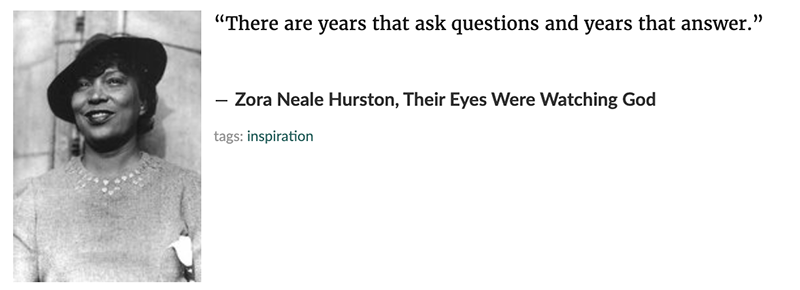
Originally published on Pulse, the University of Utah Health MarCom Intranet blog
*A.N. Wilson, The Mystery of Charles Dickens, pg 6, published 2020
^Please note that unless otherwise specified, all data is tied to the dates of Jan 1, 2020–Oct 31, 2020.
**Don’t understand why that’s a big deal? Talk to me or attend the upcoming SEO summit, Jan 2021. It’s a BIG deal.

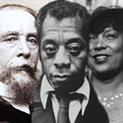

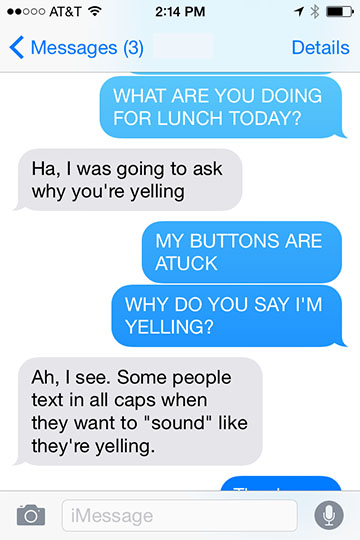 TEXT MESSAGING OR EMAILING IN ALL CAPS WITH YOUR CHILDREN/FRIENDS/CO-WORKERS, EVEN IF YOUR KEYS GET STUCK—THEY WILL THINK YOU ARE SHOUTING AT THEM.
TEXT MESSAGING OR EMAILING IN ALL CAPS WITH YOUR CHILDREN/FRIENDS/CO-WORKERS, EVEN IF YOUR KEYS GET STUCK—THEY WILL THINK YOU ARE SHOUTING AT THEM.